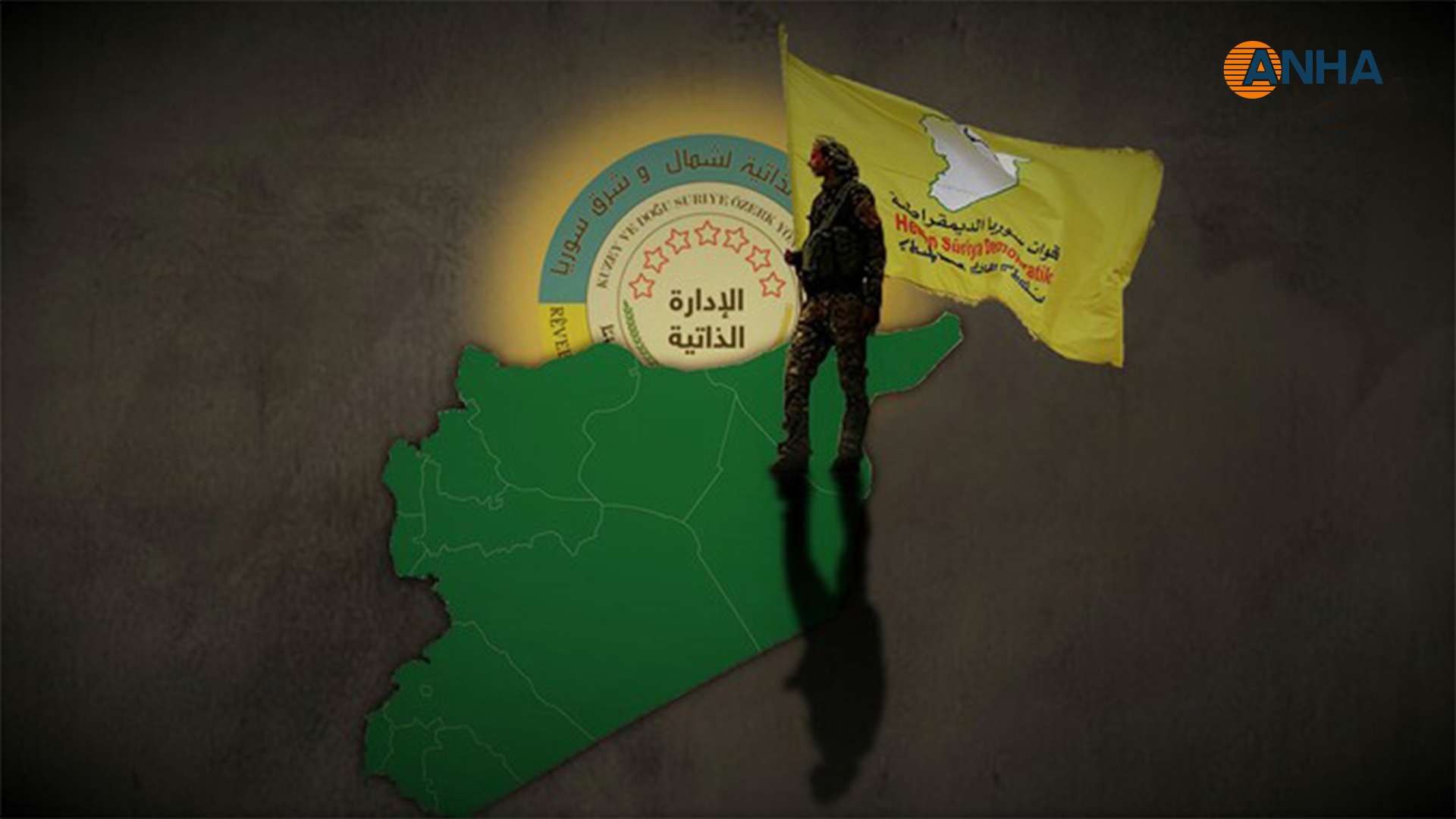Responding to AANES initiative is inevitable to solve the Syrian crisis - Yahya Al-Habib

Since the end of the Turkish elections, the path of normalization between the Damascus government and the Turkish occupation state has witnessed a state of stagnation, in addition to the faltering of many reconciliations promoted by the president of the occupying state, Recep Tayyip Erdogan, before the elections. What are the indications of that? What is the message that the Damascus government and the regional and international parties must capture?
Over the past weeks, Turkish talk has retreated from the path of normalization with the Damascus government, despite Russian efforts to achieve progress in this regard.
Before the Turkish elections, officials of the Turkish occupation state have been promoting the path of normalization, as there were almost daily statements, and this is due to the importance of the Syrian file in the electoral campaigns of the Turkish parties, especially with regard to the issue of coordination with the Damascus government to return the Syrian refugees, as the Turkish occupation claimed.
After the end of the Turkish elections and Erdogan's victory once again in the presidential seat, it seems that Erdogan felt relieved, so he returned to continuing his policies for Syria based on devoting his occupation of the Syrian regions, and instead of talking about coordinating with the Damascus government to return the refugees, he returned to transfer the Syrian refugees to the occupied areas in a form by forced and settling them in these occupied areas, and this means completing the policy of demographic change.
These practices indicate that Turkey is continuing to achieve its ambitions by repeating the Iskenderun scenario, by settling groups in areas whose original inhabitants have been displaced, and holding a referendum on annexing the occupied region to Turkish territory.
These messages must be picked up by the Damascus government, which always talks about the need for the Turkish occupation to leave the Syrian territories, and that Turkey, which has sought since the beginning of the crisis to overthrow this government by supporting armed groups and working to bring its tools to power in Syria, is still continuing its policies, and in the event that any agreement is concluded between Turkey and Damascus, as Russia seeks, whether by reaching an amended Adana Agreement or otherwise, Turkey will again, and upon any appropriate opportunity, use its armed and political tools to strike stability in the Syrian regions and achieve its ambitions.
The recent Turkish state of euphoria and the slowdown in its progress towards normalization with Damascus were strengthened after some rapprochement with the United States of America and the West, following the flexibility shown by Turkey regarding Sweden's accession to NATO and the corresponding American and Western welcome represented by the American talk about the possibility of removing restrictions on Turkey's delivery of weapons and aircraft. Its delivery was stopped with the increasing Turkish-Russian rapprochement, in addition to the West making promises to Turkey about the latter's accession to the European Union.
This Turkish pragmatism and volatility from one embrace to another, was met by Russia with a verbal and field escalation, represented by describing the recent Turkish moves as a stab in the back, along with an escalation by Russian planes and the Damascus government against the mercenaries of the Turkish occupation, and Russia stopping the Ukrainian grain export agreement in which Turkey was a mediator. However, despite this, the Russian reactions did not reach the level of deterioration of relations between the two parties, as they exchange interests in most parts of the world, and Russia is still counting on the failure of the Turkey-West agreement regarding more than one file.
Amidst this pragmatism and the exchange of interests between the various forces, it remains for the Syrians and the various parties to search for their interests, and from this standpoint there is an important question, which is why the response to the Autonomous Administration's initiative to solve the Syrian crisis has become more urgent now?
Because the international powers represented by both Russia and the West, as expected, will increase their attempt to satisfy Turkey and attract it to one of the parties regarding the region's files, specifically the Syrian file. It is possible for Turkey to complete the policy of playing on contradictions and obtaining concessions in the Syrian file, whether from the United States, the West and Russia, and for Turkey to maintain its occupation of the Syrian regions and preserve its tools from mercenary groups, including foreigners linked to international terrorist organizations. This will pose a threat to most Syrian regions and national forces, and Turkey will be able in the future to control the country's future to serve its interests.
Therefore, which is better, for the Damascus government to continue with arrogance and procrastination now and concede in the future to the Turkish occupation supported by international powers, and this poses a future threat to its existence as a government as well, especially after the path of normalization of the Arab countries with Damascus has stopped, and these countries, particularly the Gulf countries, have begun to strengthen their relations Political and economic relations with Turkey, or an understanding with the Syrian national forces, led by the Autonomous Administration, which put forward an initiative to solve the Syrian crisis?
In the same vein, which is better? For the Syrians inside the country to remain divided among themselves and suffer from poor living and economic conditions, especially since the Syrian pound depreciation, or for them to agree and unite and invest the national wealth in the service of all citizens, as included in the Autonomous Administration initiative?
All this confirms the intentions of each of the Syrian parties and the reality of their endeavors to end the crisis of the Syrians and to preserve the unity and independence of the Syrian territories.
T/ Satt.
ANHA













